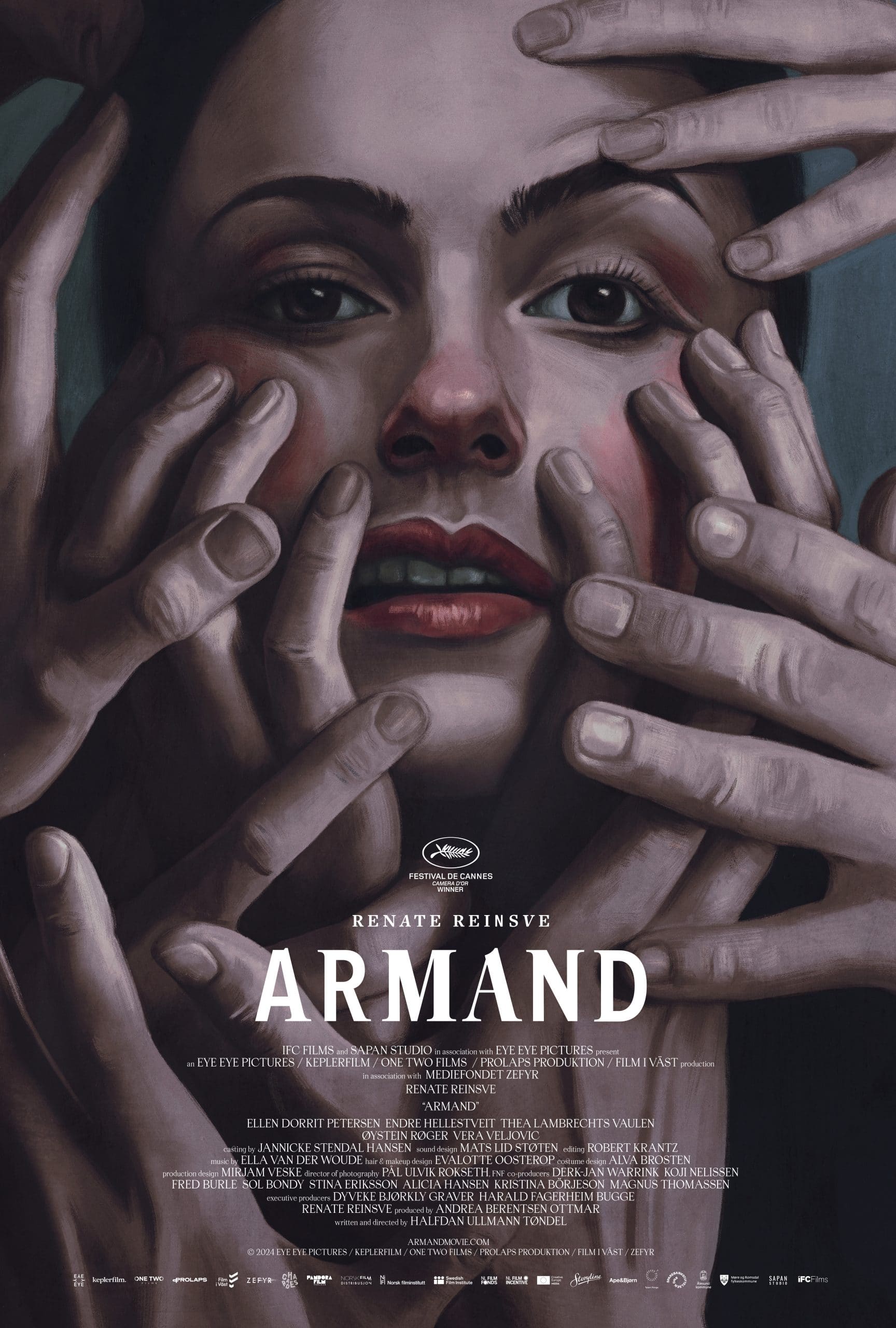
- Starring
- Renate Reinsve, Ellen Dorrit Petersen, Endre Hellestveit
- Writer
- Halfdan Ullmann Tøndel
- Director
- Halfdan Ullmann Tøndel
- Rating
- R (United States)
- Running Time
- 117 minutes
- Release Date (US)
- February 7th, 2025 (limited)
- Release Date (US)
- February 14th, 2025
Overall Score
Rating Summary
It’s easy to compare Armand to films such as The Teacher’s Lounge, another film set in a school that tackles allegations made upon a student. However, the former takes a different approach, unsurprising seeing that the director, Halfdan Ullmann Tøndel, is the grandson of the one and only Ingmar Bergman. In terms of its story, the film’s logline stays pretty quiet about the intricacies of the plot, Elizabeth (Reinsve), an actress and the mother to titular character Armand (Loke Nikolaisen), is called to his school about an incident between he and his best friend Jon. From there, the film itself ends up less being about the incident itself, one occurring off screen and whose details only come from third parties, and not only about truths and how one perceive them, but also about these kinds of complex relationships and power dynamics.
Armand starts off addressing the incident, as Elizabeth rushes to son’ school to attend a meeting with Jon’s parents, Anders (Hellestveit) and Sarah (Petersen). As the tension rose, Elizabeth found herself left in the dark about the incident and Armand’s behaviour at school. As the meeting goes on and more faculty sit in, that meeting would become about more than the incident itself. Meanwhile, as the story progresses, the focus moved away from the incident as it is relegated to the background in favor for the evidently complex character dynamics at play. Perception is just one of the ideas Tøndel attempts to look at, specifically individual perception and how one perceives those with these preconceived notions, judging them despite not knowing them at all. Throughout the meeting, Elizabeth is judged either as a parent, mother, wife, or even as an actress.
Even though the film has offers up an interesting take on such topics as perception and truth, and to a smaller extent, the school system that is trying to solve this serious issue and maintain their reputation. Even with all of this, and the complex character dynamics it tries to weave into it, the screenplay is the weakest aspect of the film. Keeping audiences at arm’s length from the characters, which was perhaps the point, its execution didn’t quite pan out the way the director intended. Rather, the film simply meanders, providing only sprinkles of information, but never enough to emotionally connect with the characters. Though its screenplay is interesting, the ending incorporates such surrealist elements that the film becomes too scattered, leaving little time for a satisfying resolution. This results in an underdeveloped plot, culminating in an unearned ending. Had it stuck to a more grounded approach and explored its complicated themes and dynamics further, it would have benefitted, rather than leaving its themes and narrative half-baked.
In the midst of its meandering plot and abstract third act, the standout, aside from the performances, is the cinematography. Shot on beautiful 16mm film, Tøndel frames scenes and moves the camera in a way that fits with the themes of the film, the feeling of eavesdropping and uncertainty. One can’t help but feel as if they are intruding, like they are not meant to be there. All of this works hand in hand with interesting and often striking production design. It just feels as if so much detail is put into what others could write off as a boring school building. In the end, none of this film would have worked if not for the outstanding lead performance by Reinsve. Elisabeth’s louder moments of frustration work, but it’s the quieter moments that sell the character, conveying so much with few words. Playing a clearly complicated and layered character, Reinsve plays her with such ease and conviction, even in the moments of surrealism.
While Armand was not without its shortcomings, it’s clear that Tøndel has potential here. Even though his ideas didn’t all come together, his ambition is definitely noteworthy. His attempts to blend the real and the surreal, encasing a story laced about perception and trauma are bold. However, the layers of metaphors within the writing cause the story to become mildly convoluted as audiences are left to attempt to wrap their minds around what everything is supposed to mean in this otherwise straightforward tale. Scenes of interpretive dance and fits of laughter are interjected, but the abstraction takes away from the grounded reality of the story, halting the progress of the narrative. And despite these criticisms, one can appreciate the attempts to blend these different elements of reality, to showcase trauma and experiences in surreal ways, even if the landing never really sticks. Armed with a stronger, tighter script, it would be interesting to see what Tøndel is able to accomplish in the future.
still courtesy of IFC Films
If you liked this, please read our other reviews here and don’t forget to follow us on Twitter or Instagram or like us on Facebook.

Discover more from
Subscribe to get the latest posts sent to your email.
